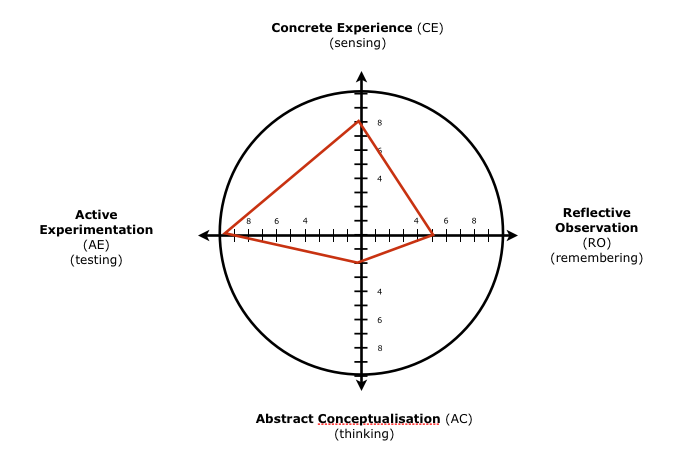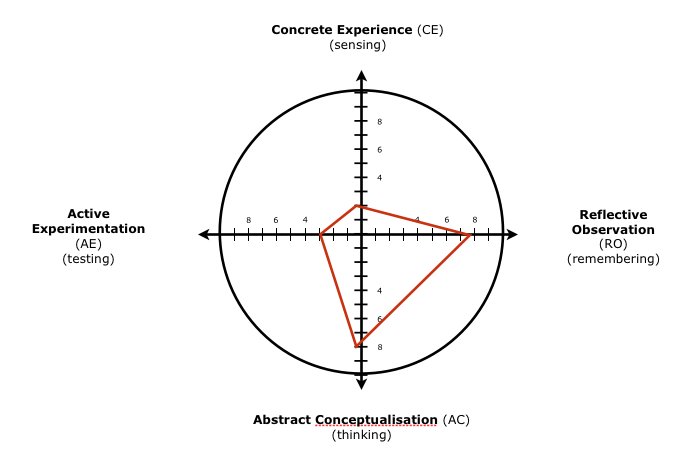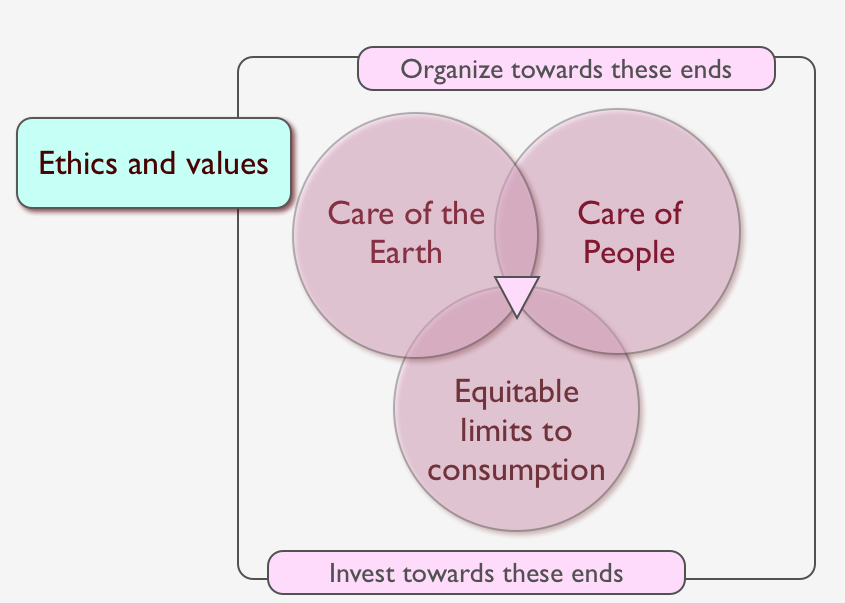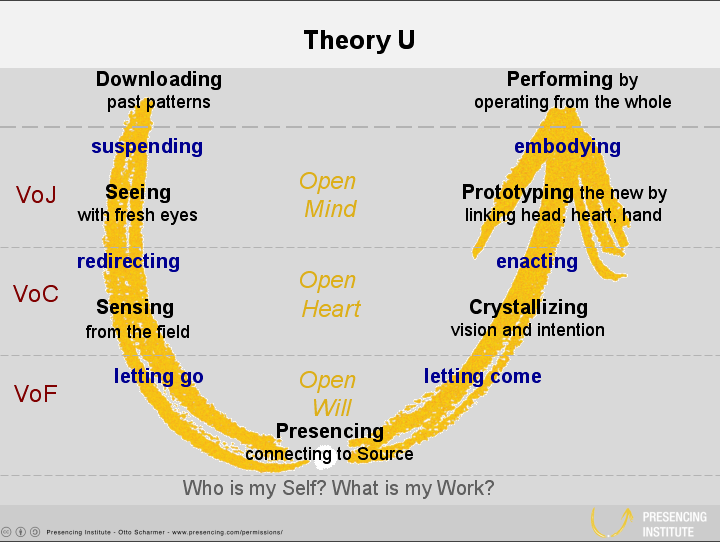Experiential Learning
| Now we progress to the detail. How can we
conceptualize the different aspects of learning from experience? These
range from hands-on doing, debriefing successes and disasters, looking
for clues as to how to do things better next time and trying out
approaches in less than full risk situations ... Kolb's model David Kolb is very well known for his 1980's analysis of the qualitatively different activities and approaches required of well-rounded experiential learners. His descriptions of learning styles allows us to do some powerful reflection on our own skill flexes as self-foraging action learners. However the idea that you and I might have a somehow pre-determined learning style is losing favor*** - it may well be better to imagine that each of us has an infinite capacity to develop skills in all approaches. In the graphic below you will see the learning style approach writ large - the boxes containing 'Accommodator', 'Diverger' and so on are meant to suggest that we can think of types of learners whereas, in Gaia U we think of types or modes of learning instead. 'Accomomodator and Diverger are Kolb's original terms. Honey and Mumford* later converted these to 'Activist, Reflector' and so on in an attempt to make the meaning more clear and to differentiate their work from Kolb's. 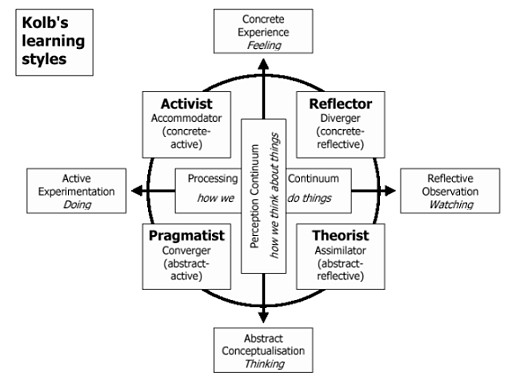 Kolb's model is widely quoted, modified, embellished and critiqued. Read this summary here***. And try this critique here**. You will notice that this chapter makes good use of the infed*** (informal education) website at http://www.infed.org. It is highly recommended for self-foraging purposes. |
